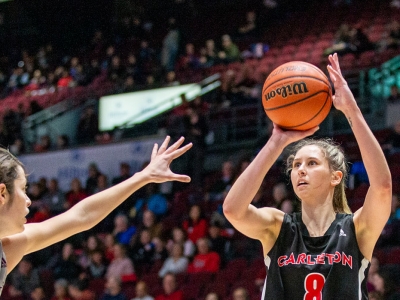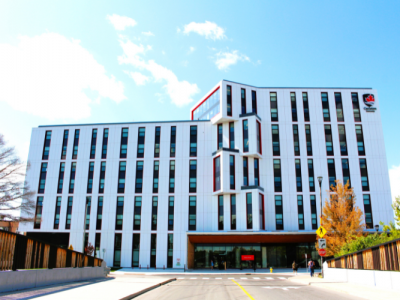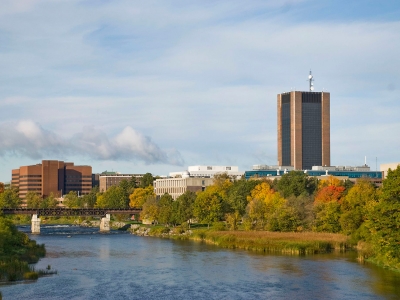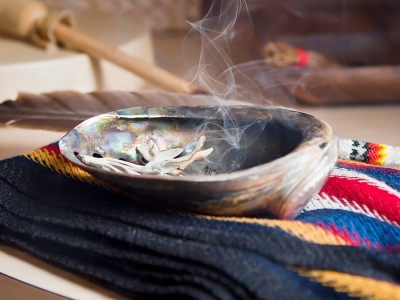Carleton University’s research income has grown to more than $81 million, an increase of more than 50 per cent over the last two years. After achieving the highest growth in research income among comprehensive universities in Re$earch Infosource’s Top 50 Research Rankings last year, Carleton has again placed in the Top 3 in Canada. Carleton is the only university to rank in the Top 3 for growth in both of the last two years.
Each year, Re$earch Infosource, an independent research and consulting firm focused on Canadian research and development, ranks Canada’s most research-intensive universities, and Carleton is climbing the ranks in almost every category.
“We are proud that Re$earch Infosource is officially confirming the research excellence that we see in so many critical and impactful research areas at Carleton,’’ said President Benoit-Antoine Bacon. “To rank in the Top 3 for funding growth for two consecutive years is a remarkable achievement and I extend my sincere thanks and congratulations to all our researchers and research teams.”
Carleton’s continued focus on collaborative research with major social, environmental and economic impact has earned international recognition for researchers taking innovative approaches to solving some of society’s most vexing problems in areas like renewable energy, Indigenous reconciliation and the health of Pacific salmon.
“The growth we have seen is as gratifying as it is impressive,” said Rafik Goubran, vice-president (Research and International). “This has been an unprecedented year, and we are proud of the extraordinary efforts of our faculty members and research support staff as we build momentum in finding solutions to society’s challenges.”
And research aimed at the COVID-19 pandemic is already yielding promising results.
Edana Cassol and Joerg Overhage, professors in the Department of Health Sciences, are determining whether COVID-19 could be reprogramming the function of immune cells and altering their ability to respond to bacterial infections.
Biology Prof. Alex Wong is evaluating the use of ultraviolet light for N95 mask decontamination and studying the persistence of the SARS-CoV-2 virus on surfaces in hospital environments.
Ashkan Golshani and Frank Dehne used AI and Canada’s largest supercomputer to identify a potential protein-based treatment for COVID-19. Kyle Biggar is also seeking to identify peptides that could be used as anti-viral treatments.
Carleton’s Wei Shi developed a contact tracing app that uses Bluetooth technology to identify exposure to COVID-19 without collecting personal information. And Burak Gunay is studying ways to use the heating, ventilation and cooling systems of commercial buildings to reduce transmission risk in indoor environments.
For more information about Carleton’s research, please go to: https://bit.ly/3lXqUqm.
Media Contact
Steven Reid
Media Relations Officer
Carleton University
613-265-6613
Steven.Reid3@carleton.ca
Follow us on Twitter: www.twitter.com/Cunewsroom
COVID 19 Updates: https://newsroom.carleton.ca/coronavirus-covid-19/messages/
Tuesday, December 8, 2020 in News Releases
Share: Twitter, Facebook



